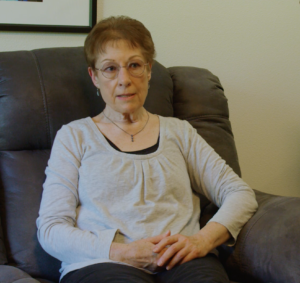While utility hardship affects Oregonians statewide, the crisis is felt most fiercely by those living in rural areas. Despite the high level of need, few resources are available to these communities, due largely to the remote nature and low populations of rural areas.
Climate change has only heightened the urgency of this need. Extreme weather events like wildfires, cold spells, and heat waves represent a direct threat to the safety of rural Oregonians. As events like these grow more common, it is imperative that families can keep their homes at healthy temperatures.
Three years ago, Oregon Energy Fund began dramatically expanding funding to rural Oregon. In some areas, we were able to increase our funding by a factor of five. This work has continued to grow, fueled by support from our generous donors and foundations.
Recently, Oregon Energy Fund received two community grants totaling $35,000 from The Roundhouse Foundation and The Wildhorse Foundation. These grants will allow us to increase funding to Morrow, Umatilla, Union, Wallowa, Harney, Lake, Malheur, and Wheeler Counties to help an additional individuals in financial crisis with their utility bills.
Donate to OEF today so we can continue to respond to this need – and ensure struggling Oregonians can keep their homes and loved ones safe and healthy.
 “Tim and his wife Joni needed to make more than 10 trips to the doctor last month for surgery and other medical issues. It’s an hour-long drive from their home in the country, and all the extra gas was a major expense that caused them to fall behind on their other bills, like energy.
“Tim and his wife Joni needed to make more than 10 trips to the doctor last month for surgery and other medical issues. It’s an hour-long drive from their home in the country, and all the extra gas was a major expense that caused them to fall behind on their other bills, like energy. “On my budget, everything is significant, and when COVID hit, we had extra expenses. Without energy assistance, it would’ve been a much, much harder journey. I just have that little bit of extra money each month…that’s able to go to things like food, family essentials, and health care.
“On my budget, everything is significant, and when COVID hit, we had extra expenses. Without energy assistance, it would’ve been a much, much harder journey. I just have that little bit of extra money each month…that’s able to go to things like food, family essentials, and health care. “As the Program Coordinator for my agency’s energy assistance program, I get to witness firsthand the impact that a gift to OEF has on a family.
“As the Program Coordinator for my agency’s energy assistance program, I get to witness firsthand the impact that a gift to OEF has on a family. “Luanne, Beth, and James live in a low-income community in eastern Oregon. When their landlord failed to keep up with maintenance, the building’s HUD subsidy was revoked, driving up the rent and utility costs.
“Luanne, Beth, and James live in a low-income community in eastern Oregon. When their landlord failed to keep up with maintenance, the building’s HUD subsidy was revoked, driving up the rent and utility costs.